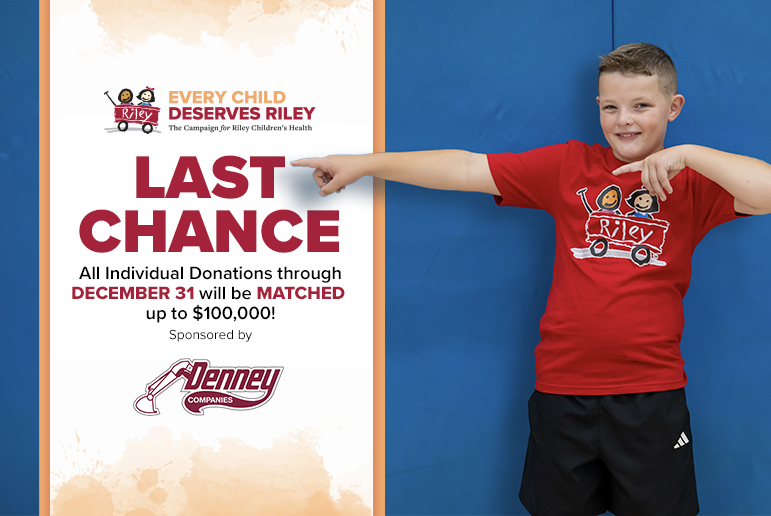New Progress Against Cancer: Tyler's Legacy
You don’t have to be a scientist to understand these things:
• If you want to cure cancer, you have to test new techniques.
• The best way to see if drugs kill cancer is to test them on actual, living cancer cells.
• To do this research, you need cancer patients with big hearts to provide tumor samples.
Thanks to the incredible gifts of Riley cancer patients including the late Tyler Trent of Carmel, Ind., cancer researchers with Riley Precision Genomics are making promising progress.
During his battle with relapsed osteosarcoma, Tyler provided samples of his tumor, which he named TT2. That’s where Karen Pollok, Ph.D., comes in. Her cancer research team at the Wells Center for Pediatric Research is funded by Riley Children’s Foundation donors including Tyler himself, and is also part of the Riley Precision Genomics program. The investigators first work to find out the molecular profiles of tumor samples like Tyler’s, then recreate the tumors in mice, and finally test drugs that seem most likely to impact that tumor based on the genetic information.
Dr. Pollok’s lab receives a number of tumor specimens from Riley Hospital patients each year. Research with patient samples is highly regulated and the researchers do not know from whom the tumor specimens come from. Occasionally, a patient and the family want to know what research is being conducted with their child’s sample. Once the family gives permission, the sample can be linked to the patient and an update provided to the family. This is what happened in Tyler’s case. Here is the latest update Dr. Pollok’s team provided to Tyler’s family: When the research team saw that Tyler’s TT2 tumor had a specific gene amplification on chromosome 8, they came up with a novel therapy to target it. They tested two different drugs against the tumor, as well as a combination of both drugs.
It turns out, the combination of the two drugs worked best. Even better, the drugs were well-tolerated, and no toxic side effects were found.

